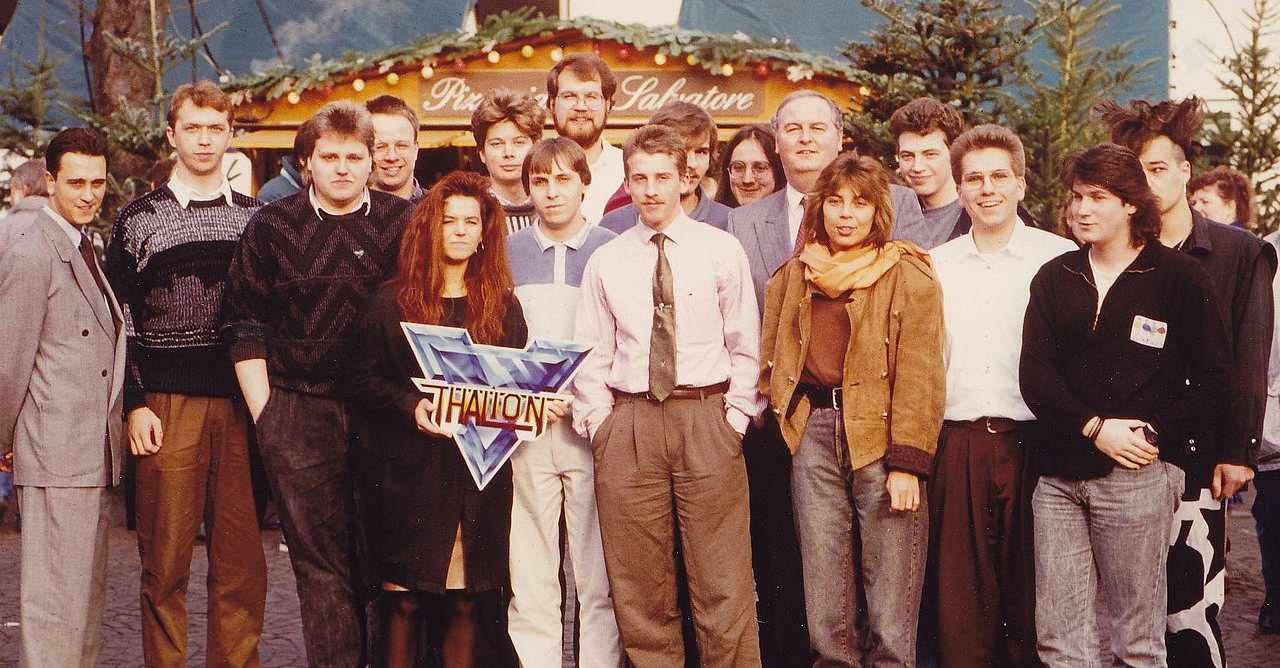Thalion's Christmas 1989 Employee Roster
Picture made for the UK magazine "Ace" (it actually appeared there in a much smaller form), on 7 December 1989 at the Gütersloh Christmas market. It features an almost 100% complete Thalion employee line-up, plus some British guys who worked at Grandslam (this was because Grandslam had just secured the rights to UK distribution of Thalion games). From left to right: Duncan Lowthian (the marketing guy at Grandslam UK, I seem to recall), Holger Flottmann (co-founder of Thalion and managing director at the time), Karsten Köper (designer of "Amberstar" and "Ambermoon"), Richard, Manuela (receptionist/secretary babe), Niclas "Nic of TCB" Thisell (who programmed "Enchanted Land"), Marc "Eclipse" Rosocha (who programmed "Chambers of Shaolin", "Wings of Death" and "Wings of Death II"), Erik "ES of TEX" Simon (co-founder of Thalion, graphics wizard and designer of, among many other things, "Dragonflight"), Gunther Schmitz (graphics artist, "Chambers of Shaolin" and some of "Wings of Death"), a largely obscured Michael Bittner (who programmed "Warp", "Leavin' Teramis" and "Trex Warrior"), Jochen Hippel (who did all the sound programming, of course, but also did Amiga conversions, little known factoid!), Stephen Hall (founder and boss of Grandslam), Monika Krawinkel (graphics for a lot of games, including Rainbow Arts' "Bad Cat" before she joined Thalion, and also "Amberstar"), Christian Jungen (who programmed the seminal "No Second Prize"), Matthias Sykosch (the PC versions of most early Thalion games were done by him), Mario Knezovic (who did Commodore 64 versions of the Jochen Hippel music - he's the one with the wild hairdo) and Peter Künst (who worked on the C64 of Chambers of Shaolin). The only person who is not in this picture but who I am pretty sure worked at Thalion at that time was Michael "Mickey" Grohe, who did graphics for "Enchanted Land" and quite a bit of "Leavin' Teramis". Oh, well, nor Udo Fischer (programmer of the game that would be “finished any week now” throughout my entire time at Thalion, “Dragonflight”). Udo had a tendency not to be present sometimes.

